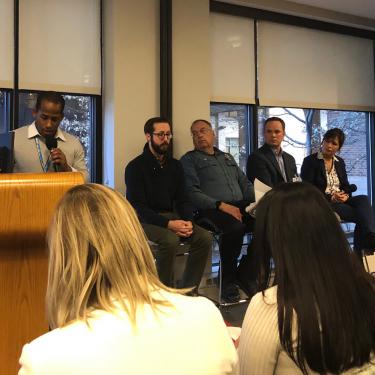Healthcare Taskforce: Understanding the Past and Preparing for the Future of Healthcare
Jan 24, 2020
Co-Chairs: Nancy Curran, Stafford Hughes, Kamera Meaney
Committee Members: Kathryn Allen, Stacy Barter, Emily Gretzinger, Nicole Jeffries, Andrea Mulvany, Wendy Savlin, Charles Smith III, Megan Turner, Lisa Womack
DEI Liaison: Drew Elliot, Children’s Mercy Hospital
Regardless of one’s socioeconomic status or political preference, healthcare impacts every facet of our society. Healthcare is consistently the number one concern of voters in great part due to the complexity of this necessary system. Exorbitant costs that continue to rise, access to quality and preventative care, and unstable patient satisfaction rankings are the apparent opportunities within the majority of health systems specifically for those who work in the field. However, we often fail to analyze the intersectionality of the healthcare sphere especially when we feel we are not directly impacted. Laws related to healthcare coverage, changes in school lunches, closure of mental health facilities, etc. all influence the healthcare landscape and the access and services available to us all. The intent of the Centurions Healthcare Taskforce is to demonstrate the impact healthcare has on us all, and not only when we are scheduling a doctor’s appointment or renewing our insurance plan. The Committee’s hope is that through the day’s programming the complexity and highly fractured state of healthcare in Kansas City can by greater understood and relatable.
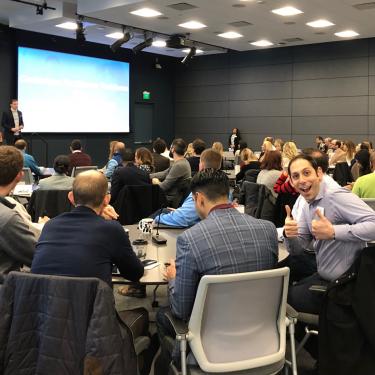
Session 1: History of Healthcare
One must know the past to understand the present. President and CEO of Truman Medical Centers Charlie Shields provided a history lesson on healthcare in Kansas City including the establishment of the first hospitals for the indigent, segregated health systems and provider privileges, and the impact of Medicaid and Medicare brought about by the Social Security Administration Act of 1965. Charlie also discussed how the current healthcare model operates, primarily from a financial perspective, and how innovative changes to this model should be considered as we prepare to meet the future needs of an aging society, manage increased acute diagnoses, and combat rapidly rising costs.
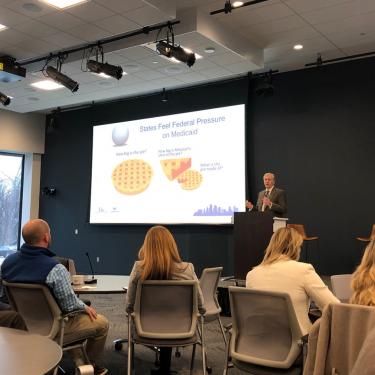
Session 2: Social Determinants of Health Panel Discussion
Historically, efforts to improve health (not exclusively healthcare) across the United States have traditionally examined the healthcare system as the key driver of health outcomes. However, research consistently shows social determinants – the conditions in which people are born, grown, live, work, and age, and the wider set of forces and systems shaping the conditions of daily life – have the greatest impact on health outcomes and are responsible for most health inequities. This expert panel discussed the impact of socioeconomic and racial disparities on present and future health-delivery outcomes, and how through the use of effective policy we as a city can address social determinants of health. The group received candid perspectives of how disparities centered on race, immigration status, education, and geographic blight truly mean life or death for so many in Kansas City.
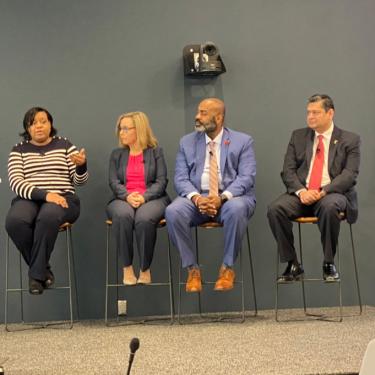
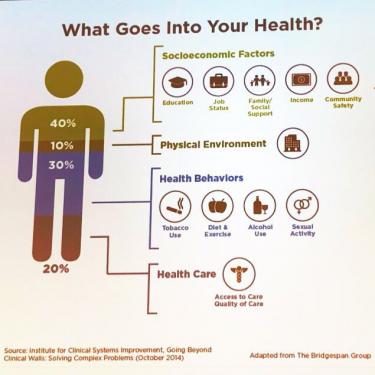
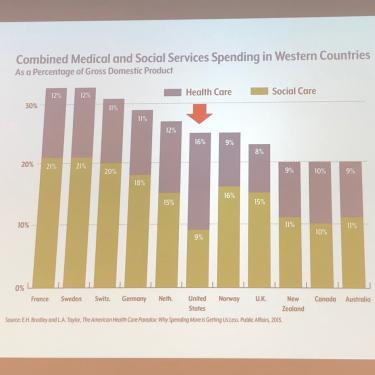
Moderator: Dr. Marci Nielsen
Panelists: Dr. Faisal Khan, Samuel U. Rodgers; Jerry Jones, Blue Cross Blue Shield; Dr. Kimberly Megow, HCA Midwest; and Councilwoman Melissa Robinson, City of Kansas City and Black Healthcare Coalition
What goes into your health?
- Socioeconomic Factors
- Physical Environment
- Health Behaviors
- Health Care
Combined Medical and Social Services Spending in Western Countries as a Percentage of Gross Domestic Product
Session 3: Cerner Experiences
Healthcare IT (HIT) examines factors influencing growth throughout the healthcare market along with detailing key trends, drivers, restraints, and opportunities throughout healthcare systems. For the majority of hospitals and healthcare providers in Kansas City, Cerner’s software manages patient electronic health records, lab information systems, prescribing systems, and telehealth applications. During the day’s taskforce, Centurions witnessed how Cerner became the leader in HIT as well as their current goals and objectives in streamlining patient care by experiencing the corporation’s recent focus on population health – the health outcomes of a group of individual. Centurions experienced interactive videos, presentations, and hands on models all exemplifying how Cerner is engaging patients and providers in health and care delivery.
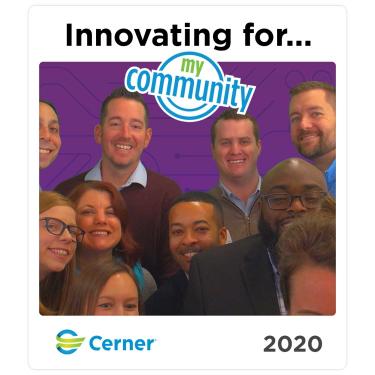
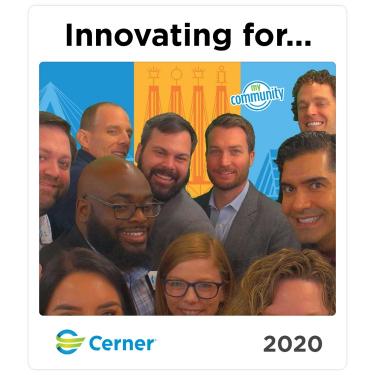
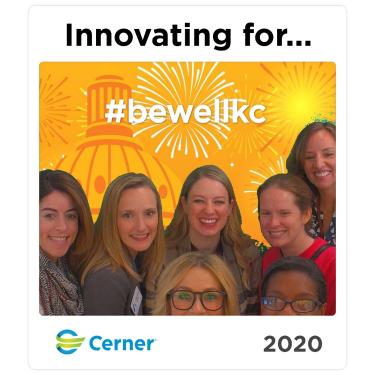
Session 4: Innovation in Healthcare Panel
Moderator: Mariana Ramirez, University of Kansas Medical Center
Panelists: Dr. Daphne Bascom, St. Luke’s Health System; Dr. Jeff Wall, Cerner; Dr. Karen Staehling, Stowers Institute for Medical Research; and Tim O’Brien, Blue Cross Blue Shield
What does the future of healthcare delivery look like? Four leaders in healthcare research and technology explained what their individual organizations are doing to prepare Kansas City’s healthcare systems for addressing current and future needs. The panel discussed the need to accelerate and produce exponential change in important areas of prevention, more integrated and comprehensive delivery organizational designs, and additional creative technology enabled options for effective health encounters between providers and patients.
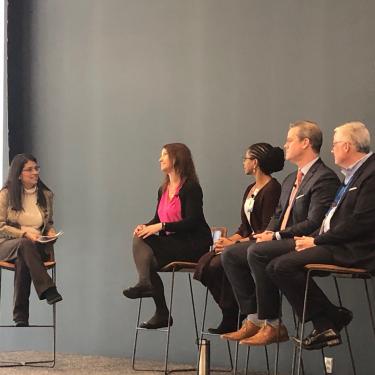
Session 5: Healthcare Breakout Groups
The healthcare scope in Kansas City is vast. Centurions broke out into small groups to visit eight healthcare landmarks all focused on the improvement of access to care and patient care. Groups visited Truman Medical Centers Inpatient and Outpatient Operating Rooms and LGBTQ Clinic (consists of primary care, endocrinology, plastic surgery, and mental health), Ronald Mcdonald House, Uzazi Village, Samuel U. Rodgers Health Clinic, St. Luke’s Cardiology Clinic, Sarah Cannon Cancer Center, and UMKC School of Nursing. The primary objective of the small breakout groups was to allow Centurions an inside view of what really happens in a variety of healthcare environments.
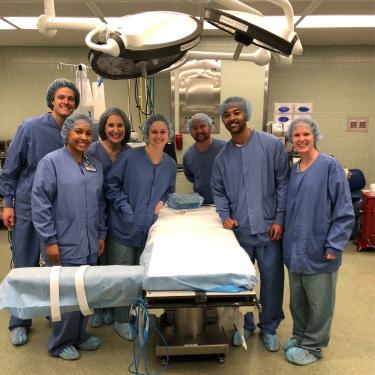
Session 6: Behavioral Health Panel
Moderator: Russell Anderson, Truman Medical Centers
Panelists: Aric Anderson, Kansas City Police Department; Dr. Doug Burgess, Truman Medical Centers; Sandy Currie, Guadalupe Centers, Inc.; and Adam Magers, The Battle Within
The day closed with a raw and honest panel discussion centered on mental health in the KC region. Behavioral and mental health is a healthcare problem in nearly every community including Kansas City. The panel consisted of four experts in different areas of behavioral health services – addiction and recovery services, trauma, PTSD, and community services – contributed to an in-depth conversation about mental disorders in our city. Issues involved with this conversation included imprisonment of the mentally ill, insurance coverage for addiction and psychological treatment, how the mental health landscape in Kansas City has changed in recent years, and, perhaps most importantly, how our society must combat the stigmas of behavioral and mental health illnesses.
